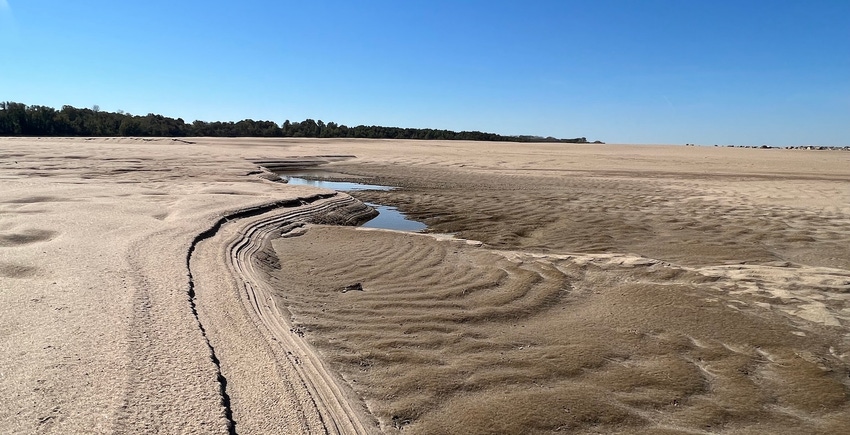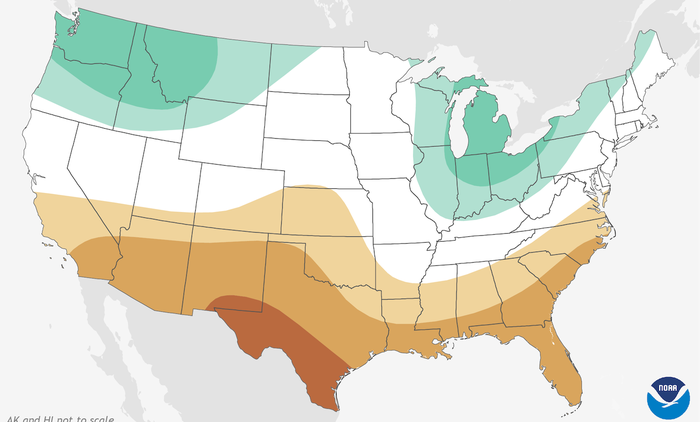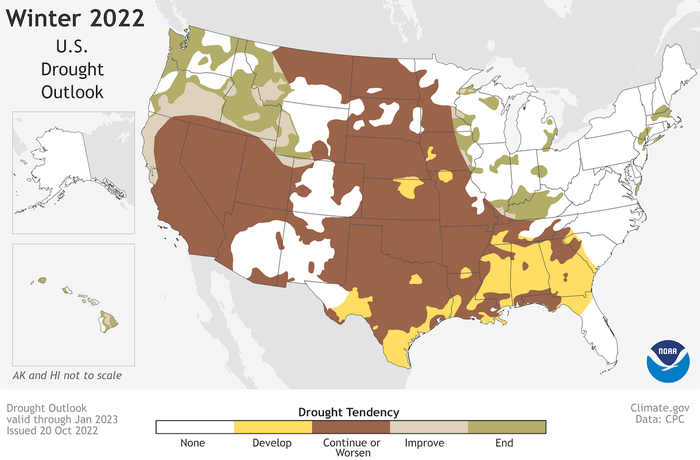
The record low levels of the Mississippi River do not have Mike Brown, Mississippi’s state climatologist worried. Not yet anyway.
“The fall has been quite dry, which climatologically isn’t unusual, but our summer was also a little dry. So, now, we’re finding ourselves a little bit behind, especially in the western part of the state,” Brown said.
“The problem is the drought extends so far north, and the Mississippi River levels are so low,” he added. “We use the Mississippi River to recharge our aquifer in the Delta. So, we’re not getting that horizontal flow of water underground to recharge the aquifer.”
The Mississippi River alluvial aquifer is the primary source for agricultural irrigation in the region. Water pumped from the aquifer also serves industrial uses and some public supply. Millions of gallons are pumped from the aquifer annually.
“It’s fortunate that the crop season is over. If farmers had to be irrigating right now, we’d be drawing down that aquifer, and we wouldn’t be able to replenish it because the Mississippi River levels are so low,” he said.
“My concern really isn’t for what’s going on right now, my concern is what the next two to three months are going to look like. Can we get some good precipitation in the upper Midwest as well as down here to recharge the Mississippi River and recharge our aquifer?”
The Winter 2022-23 Precipitation Outlook from the National Oceanic and Atmospheric Administration shows drier than average conditions for much of the southern U.S. The Winter Drought Oulook shows drought developing or persisting across the entire Midsouth.
However, the same models are leaning toward wetter-than-average conditions in parts of the Ohio Valley, which could bring relief to the shallow river and the aquifers it feeds.


“As of today, I’m not terribly worried, but I could see this being a problem for the spring, if we don’t start getting some rain here and areas north of here,” Brown added.
“Nothing is dire, right now, but if things continue, we might start using that word.”
State Climatologist
Brown has served as the official climatologist for the State of Mississippi for the past 11 years, with another 22 as the assistant state climatologist. His office is based at the Mississippi State University campus in Starkville, where he also serves as a professor of Meteorology and Climatology.
In addition to teaching classes, Brown works with the state’s Crisis Action Team during periods of severe weather and has developed hazard mitigation plans for MSU.
His work also includes developing climatic summaries for communities across the state as they work to attract industry. Before relocating or expanding to new areas, businesses want to know the probability of hazardous weather in a region. He worked with Canton, Miss., when Nissan came in.

His research has studied migratory bird patterns, and he could probably tell you the best time to duck hunt in Mississippi. (He predicts ducks may be pushed South sooner this winter, due to colder than normal temperatures in the Midwest. Could be a good season, provided the ducks find some water for landing.)
Brown also works with farmers across the state, providing local weather and climate analysis that can help producers hone in on subtle changes to optimize planting or irrigation schedules.
“As someone who grew up on a family farm, that’s a part of the job I really enjoy,” he said. “Listening to farmers one on one and answering questions.”
Climate vs. Weather
When asked about the weather that defined 2022, Brown admits it was a year of “feast or famine” — but that’s Mississippi’s climate.
“It has been a bit of a strange year, and we’ve seen some non-typical weather days, but climatologically, we’re fairly normal,” he said. “In Mississippi we are subject to extremes, — drought and flood, big fluctuations in temperature — our climate rarely seems to bring average conditions.”
The key word there is “seems.” Weather is something we tend to interpret subjectively — based on how hot we feel in the moment, how dry the corn is looking, how much water had to be pumped to keep livestock and crops alive.
Surprisingly, at the end of October, Memphis, Tenn., had received nearly 4.5 inches more precipitation for the first 10 months of the year than normal. That’s according to the National Weather Service and based on the last 100 years of weather data.�
It didn’t feel like a year where we received greater than average rainfall. Of course, Memphis is only one location in the region. Greenville, Miss., was nearly four inches short of average rainfall at the end of October. Tupelo, Miss., was down by roughly two inches.
It was hotter than normal for the first 10 months of 2022. Mean temperatures were up across the state ranging from one to four degrees above average.
“Nothing happened this year that has fallen out of the climatological range. We were dryer than normal and a little warmer than normal this summer, but we came off three very wet years. So, we were due a much dryer year. If you look at climatology as just being the average, it was time for us to dry out a little bit. Hopefully it doesn’t last but just a few more months and then we’re back to more normal rainfall conditions,” Brown said.
About the Author(s)
You May Also Like






